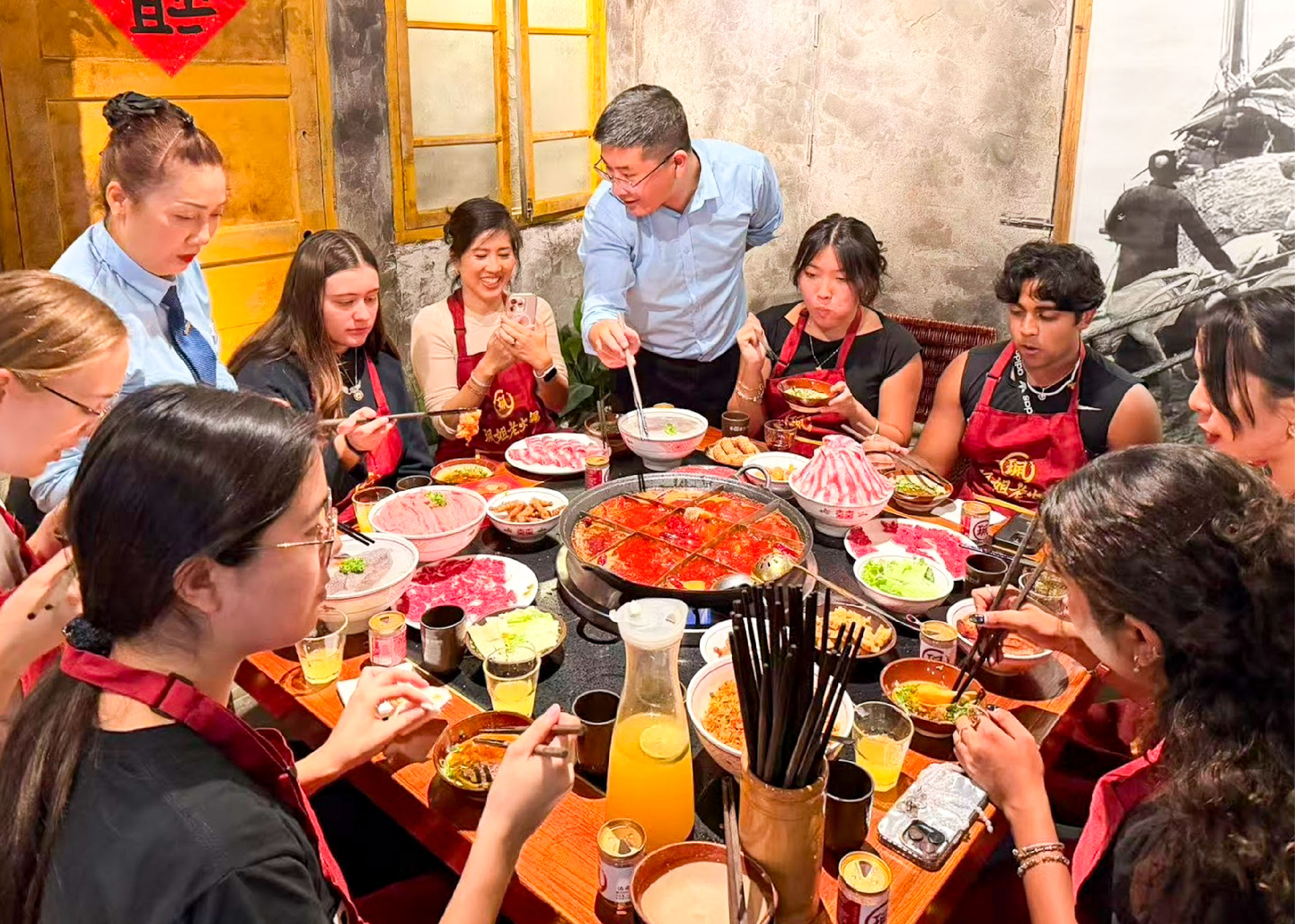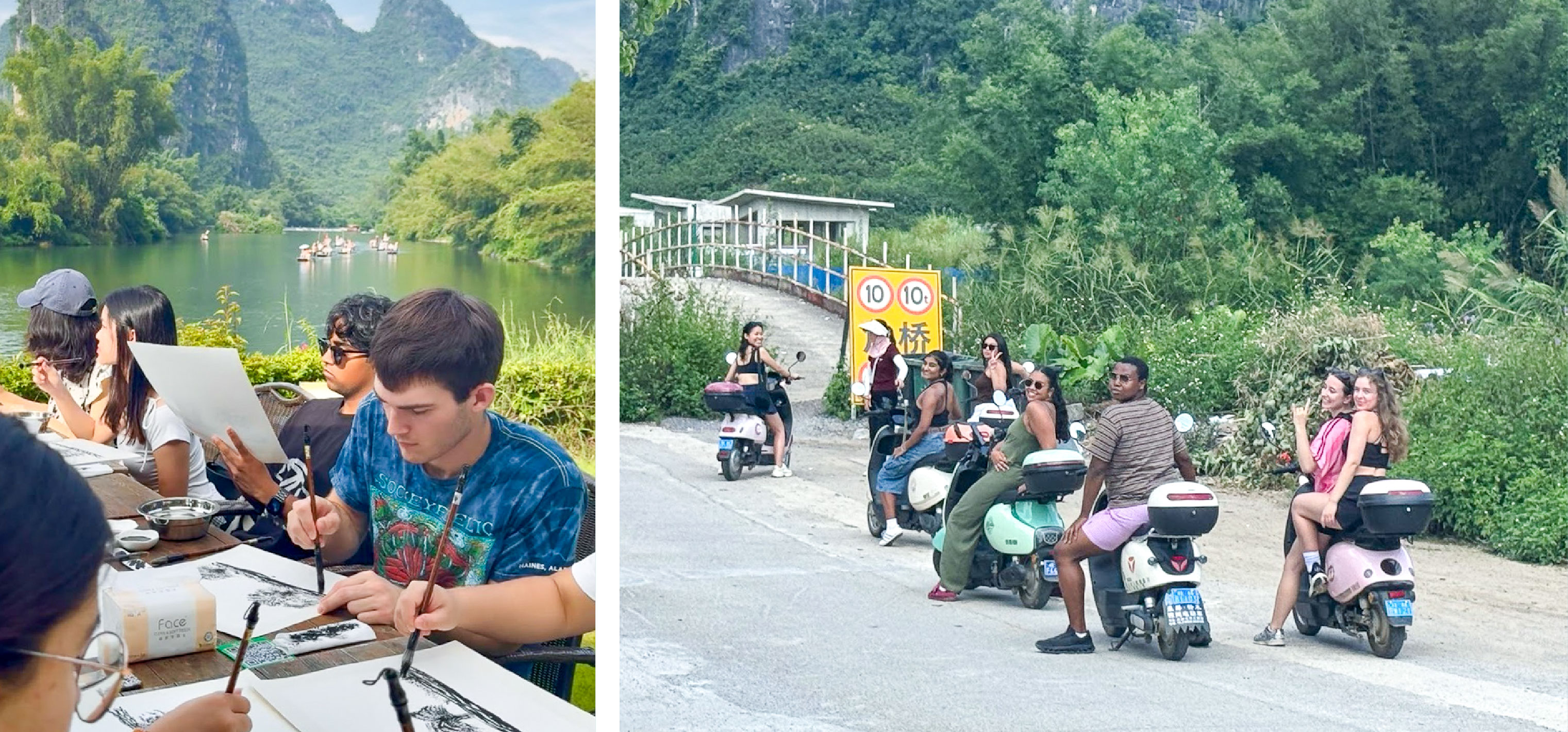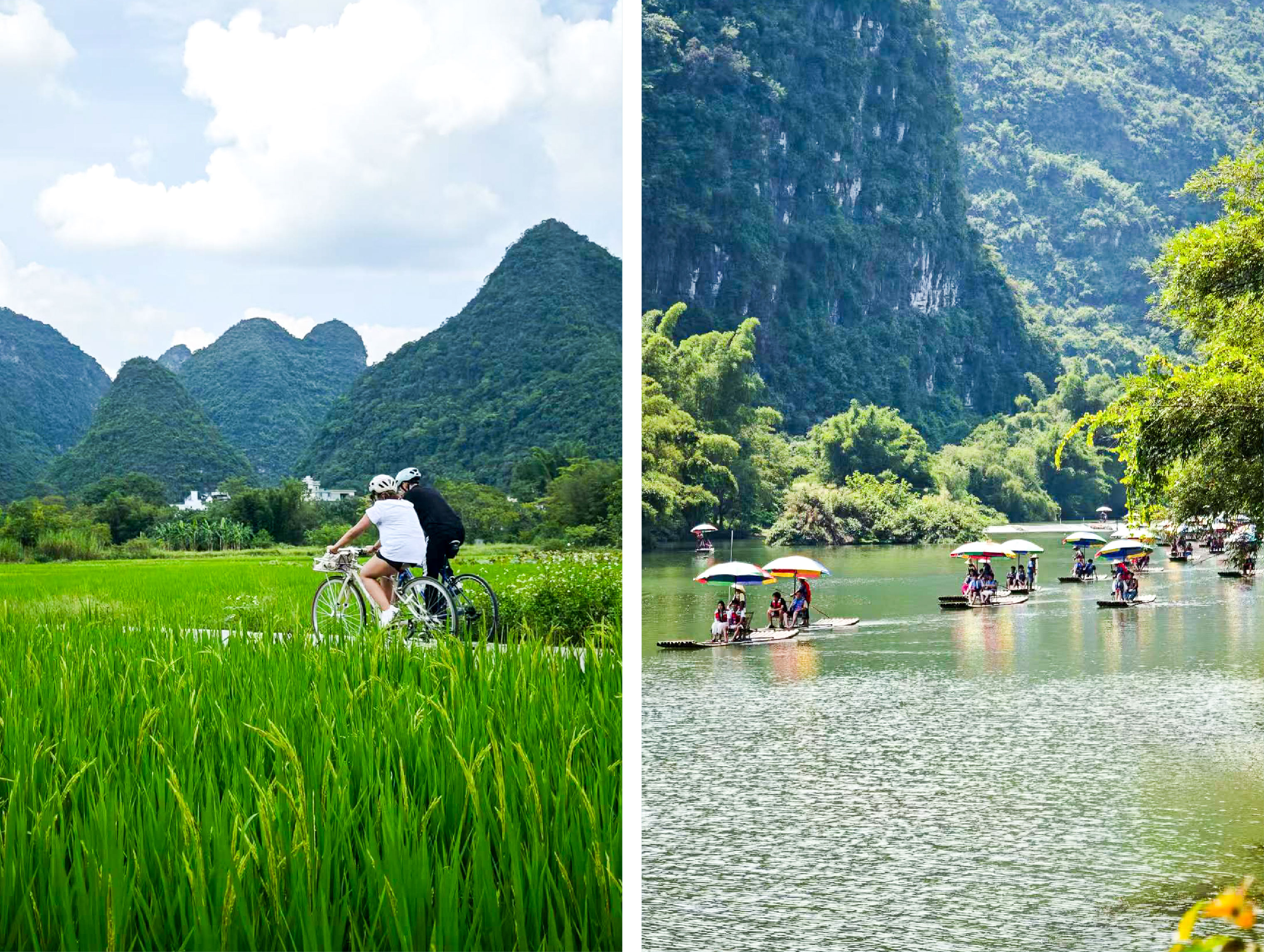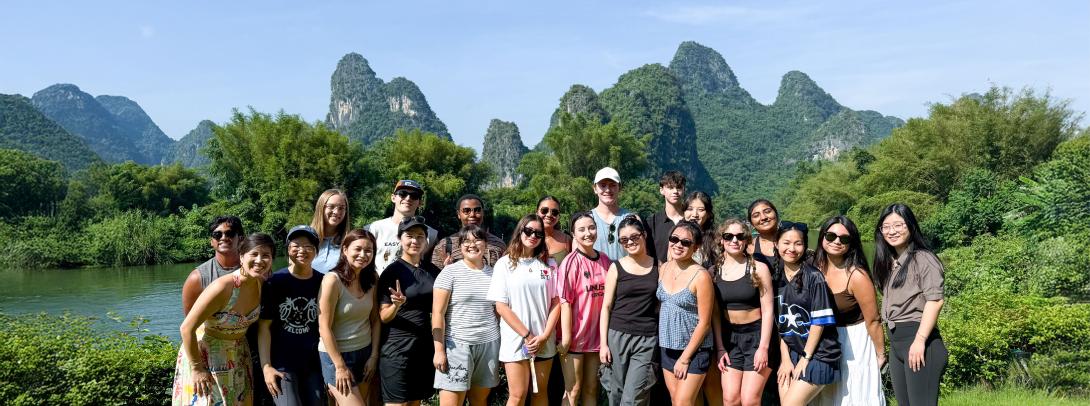When Hofstra University senior Nimba Mahlati landed at NYU Shanghai for a semester abroad, the images of China he came with – tea and calligraphy – quickly expanded to electric vehicles, artificial intelligence, and smart cities pulsing with energy.
Mahlati was selected for NYU Shanghai’s newly launched Creativity + Innovation Fellowship that invites visiting students to explore China’s fast-changing innovation landscape through research, creative work, and immersive travel. The program brings together an international cohort of students passionate about pursuing the intersections of design, business, and culture and guides them through an understanding of China’s innovation.
Mahlati’s fellowship project explores civic symbols and innovation in China. With guidance from faculty mentors Associate Arts Professor of IMB Emily Tsiang and Assistant Arts Professor of IMB Anna Hopper, he is developing a card game like Monopoly Deal where players exchange cards carrying symbols for everything from hydro plants to AI chips, each with its own cultural or social value.
“This fellowship is exceptionally helpful in understanding where China is right now and where China sits in competition with other powers in the world that are also investing in these kinds of technologies or in these kinds of emerging markets,” Mahlati said.

Mahlati is one of a cohort of visiting students from NYU in New York and other universities worldwide. Their projects span sustainable technology, storytelling, and design thinking. Each fellow receives a small grant to pursue an independent project during their semester at NYU Shanghai. Though the program carries no academic credit at the moment, students balance coursework with original research and creative exploration.
When NYU Shanghai was preparing to launch the fellowship this fall, Professor Tsiang wanted to help students engage with China’s innovation ecosystem in both rigorous and creative ways. “We conceived of this fellowship as a kind of mini-Fulbright,” she said. “It’s a supported deep dive – students travel across China, meet people from different communities, and approach the country through the lens of creativity and innovation.”
The semester begins with what Tsiang calls an “innovation primer,” grounding students in China’s historical and social context for creativity. “Travel may be the spark that brings students abroad, but the fellowship uses that instinct as an entry point for deeper inquiry,” Tsiang said.
The cohort will present their projects in early December at a creative showcase, “in any format except a PowerPoint,” Tsiang joked. From anthologies and games to robotics prototypes, each project captures a different dimension of how innovation takes shape both within China and within the students themselves.

For Izza Virani, a sophomore at NYU studying Media, Culture, and Communication, that approach has been eye-opening. The fellowship has allowed her time to sit with her thoughts, while surrounded by the breathtaking scenery of Yangshuo in southern China.
“I’ve always been creative, but I struggle to be creative without boundaries,” she said. “Emily pushed me to do something for myself – something that wasn’t academic.” What began as a comparative essay on Asian social structures evolved into a creative writing anthology about how the identity of the South Asian diaspora is defined and negotiated within different social contexts. “The open-ended nature of the fellowship gave me the confidence to pursue a project I’d wanted to do for a long time,” she said. “It’s become something deeply personal and community-focused.”

Hiren Rana, an NYU Stern senior majoring in Finance and Sustainable Business, is using the fellowship to explore how China has become a global leader in electric vehicles. His project examines how government policies, subsidies, and innovative financing are driving the shift toward clean mobility here. He said the experience is reshaping how he thinks about sustainability, not as an abstract idea, but as something built through perspective, planning, and bold experimentation. An important part of that experience has been traveling throughout China and seeing how prevalent electric vehicles are here.
“I think just being here and seeing things make me think that bridging different perspectives is how you really get information across,” Rana said.
For Tsiang, the broader goal is to reimagine what studying abroad can mean. She hopes the fellowship will grow across NYU’s global network in Shanghai, Abu Dhabi, and New York, becoming a model for place-based global learning.
“Studying abroad is transformational because places have the power to change us. A new environment interrupts our default way of being and challenges us to emerge in a completely different context,” Tsiang said. “It’s not just about seeing the world; it’s about discovering the different versions of you that are waiting to be explored.”


